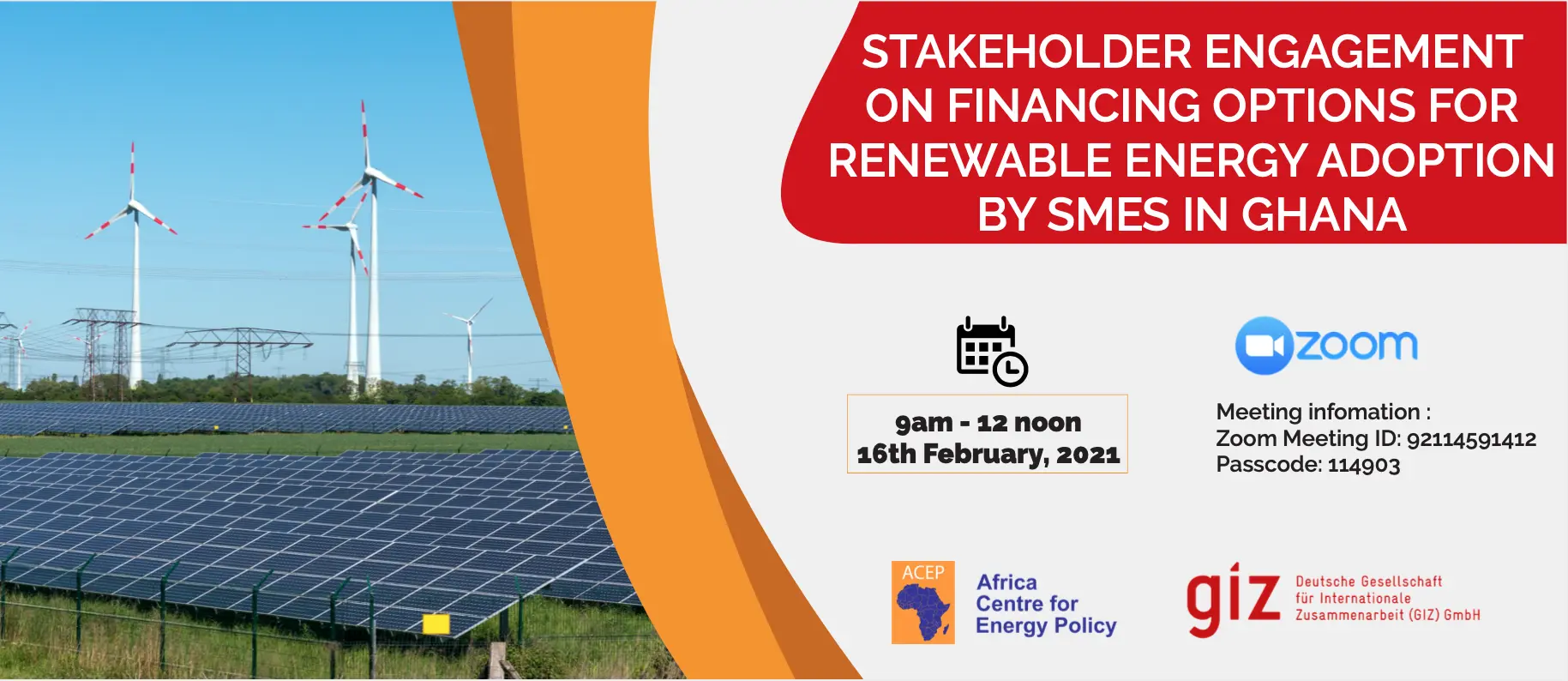

Electricity is essential for the operations of Small and Medium Scale Enterprises (SME) largely for powering machines in manufacturing/processing and packaging as well as administrative and data management operations. Access to a reliable and affordable supply of power is essential for SMEs’ ability to apply technology to their operations in a rapidly advancing technological world. SMEs in Ghana rely primarily on conventional power from the national grid for their operations.
In recent times, conventional power supply in Ghana has been plagued by challenges. The main power supply challenges SMEs face in their operations relate to instability and high end- user tariffs. The unreliability of conventional power from the grid result from power outages and fluctuations which can lead to machine failure and have adverse impacts on SMEs’ productivity. Similarly, high user tariffs result in high operating costs with its attendant negative impact on the profitability of SMEs.
To mitigate the impact of these power challenges, some SMEs resort to self-generating options such as fuel-powered generators. However, the use of this option is associated with increased cost of operation and negative environmental impacts. Better alternatives that mitigate the challenge of the unreliability of power supply and high cost of power are essential for SME productivity. Solar plants and other forms of renewable energy technologies have not only proven to be stable and cheaper in the long term, but also contribute to climate change mitigation efforts and environmental sustainability. In view of this, the Government of Ghana has committed to scaling up renewable energy penetration by 2030 as indicated in the Renewable Energy Act, 2011.
Nonetheless, the rate of renewable energy adoption in Ghana among SMEs has been moderately low. As part of a broader objective of enhancing access to affordable renewable energy, ACEP conducted a survey on the opportunities and challenges to renewable energy adoption by SMEs in Ghana. The foremost demotivating factor to the adoption of renewable energy by SMEs is high cost. The perceived high capital investment is further worsened by the lack of access to funds that enable SMEs invest in renewable energy. While some SMEs are willing to adopt renewable energy technologies, the lack of access to the needed funds and the funding options are barriers to its adoption. Other SMEs are hesitant to approach financial institutions for renewable energy financing needs due to perceived high interest charges and the short-term nature of loans offered.
From the perspective of renewable technologies suppliers, majority of their consumers self- finance all costs incurred in the installation and maintenance of the technologies. Some financial institutions have indicated their willingness to provide financial support for SMEs to invest in renewable energy products, although this is predicated on the availability of the requisite collateral and evidence of sustainable cash flow.
The data from our survey show that the reducing cost of renewable technologies installation, reliability of power supply from renewable energy plants, and reduced cost of power are some incentives for renewable energy adoption. However, information on such cost saving advantages is not readily available to consumers. There is therefore the need to provide such information in readily accessible formats and engage stakeholders, especially small businesses on renewable energy adoption.
The main objective of the project is to contribute towards enhancing affordable renewable energy through interventions that will explore opportunities for renewable energy adoption by SMEs. It is expected that this project will complement ongoing efforts by the Government of Ghana and the country’s development partners to unlock renewable energy for SMEs in Ghana while contributing to global efforts geared towards making the environment sustainable.


